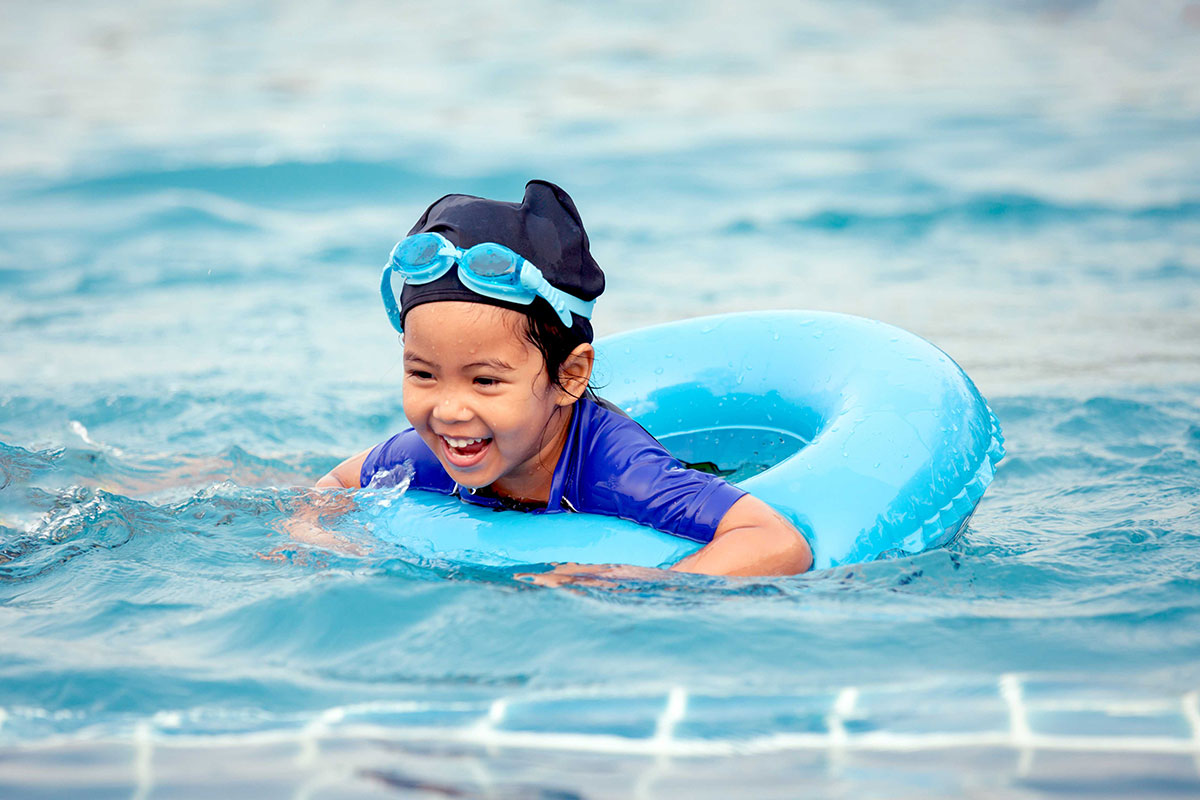For many of the competitive swimmers that I treat in my office, summer is just another season to train and compete in what often amounts to a year-round sport. For the rest of us Michiganders, Memorial Day Weekend serves as a sort of “opening day” for the Michigan water sports season. Let’s face it – we have a limited ‘window of opportunity’ here in Michigan to enjoy the warm weather by spending time on the lake, at the beach, or in the pool. With this being said, it’s a perfect time to relay some swimming safety tips and pool guidelines that might prevent a bad accident or even save a life this summer.
Luckily, most of the swimming injuries that I see in my office are easily treated, but I am writing today in an attempt to prevent some of the more catastrophic problems that occur in and around the water. Take it from a guy who took his eye off of his own daughter for 2 seconds – and turned to find her submerged beneath the water of the swimming pool struggling to get to the surface. Luckily I was right there, but this little event certainly served as a “wake-up call,” and now my own children always wear a lifejacket when they are around water. Pools, lakes, and beaches are certainly great places to spend a warm summer day, but they can also be an “accident waiting to happen,” especially if a parent gets complacent, or if an older child fails to adhere to some simple safety rules.
Although swimming and diving into a pool, lake, or river generally seem like harmless activities, many people drown or injure themselves because they do not pay attention to proper safety tips. While some injuries are “freak accidents,” most are preventable. In fact, if you look at orthopedic injuries, more than 850 spinal cord injuries across the country result from diving accidents every year. In addition, drowning tops the list when it comes to accidental injury-related deaths in our youngsters (ages one to four), and it is second on the list when it comes to slightly older kids and adolescents (ages 5 to 14).
Those are pretty scary statistics, so let’s give you some simple tips to keep you and your kids safe this summer.
If you are lucky enough to own your pool, here are some general guidelines:
- Educate guests about the pool such as depth markings, lighting, diving board location, surface and time for use.
- Set enforceable hours for pool use and secure it with fencing to keep people out during inappropriate hours. If you have a hot tub, make sure that the cover is secured so that toddlers can’t crawl in.
- Do not allow guests to swim alone or to consume alcohol or drugs while swimming.
- When the pool is in use, always have someone present who is trained in water safety and life-saving techniques.
- Don’t let kids run or horse around by the pool.
- Teach you’re your younger kids to jump feet first into the pool with plenty of clearance from the pool’s edge so they don’t hit their head. Diving should be reserved for older kids, only if the depth allows, and only in a very controlled and supervised setting.
- Never, ever, ever take your eye off of little ones in or around the water.
If you hang out at the lake or beach, here are some additional safety tips:
- Only swim in designated areas for swimmers
- Choose a beach that has a lifeguard on duty – the chance of drowning when a lifeguard is on duty is 1 in 18 million
- Never dive or jump into any river or lake without knowing the depth of the water
- Be aware, beforehand, of any rip currents or undertows. If you are caught in a current, swim parallel to the shore (alongside the shore) rather than to the shore until the water stops pulling you, then swim back to shore.
- Never swim when tired or immediately after a large meal.
- Never “go for a swim” after consuming alcohol.
- Never swim alone or out too far from the shore
- Watch out for weeds and grass, which can trap even a good swimmer. If you panic and try to yank yourself free, you may get even more tangled. Instead, shake and pull your arms and legs slowly to work yourself loose.
- If you or your child is an “unsure” swimmer, wear a life jacket
Use Common Sense
The Bottom line – it doesn’t take a rocket scientist to prevent accidents around the pool, at the beach, or on the lake. Some simple guidelines, some vigilance, and a little common sense can ensure that your summer months on the water prove to be fun and relaxing. For more links to info that can keep you safe during the summer months, go to miorthosurgeons.com.Dr. Joseph Guettler is an orthopedic surgeon who specializes in sports medicine, and he is a proud member of the MOS Team.

